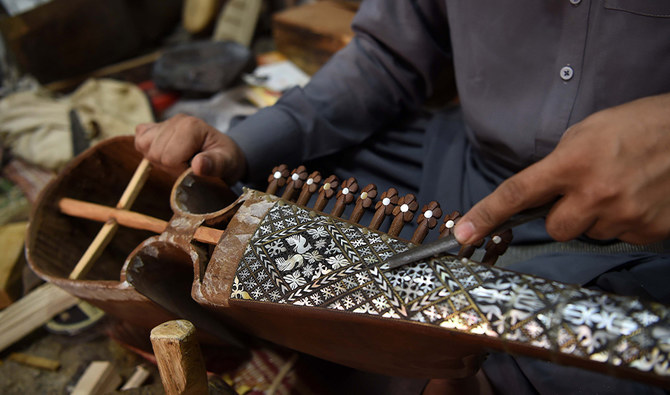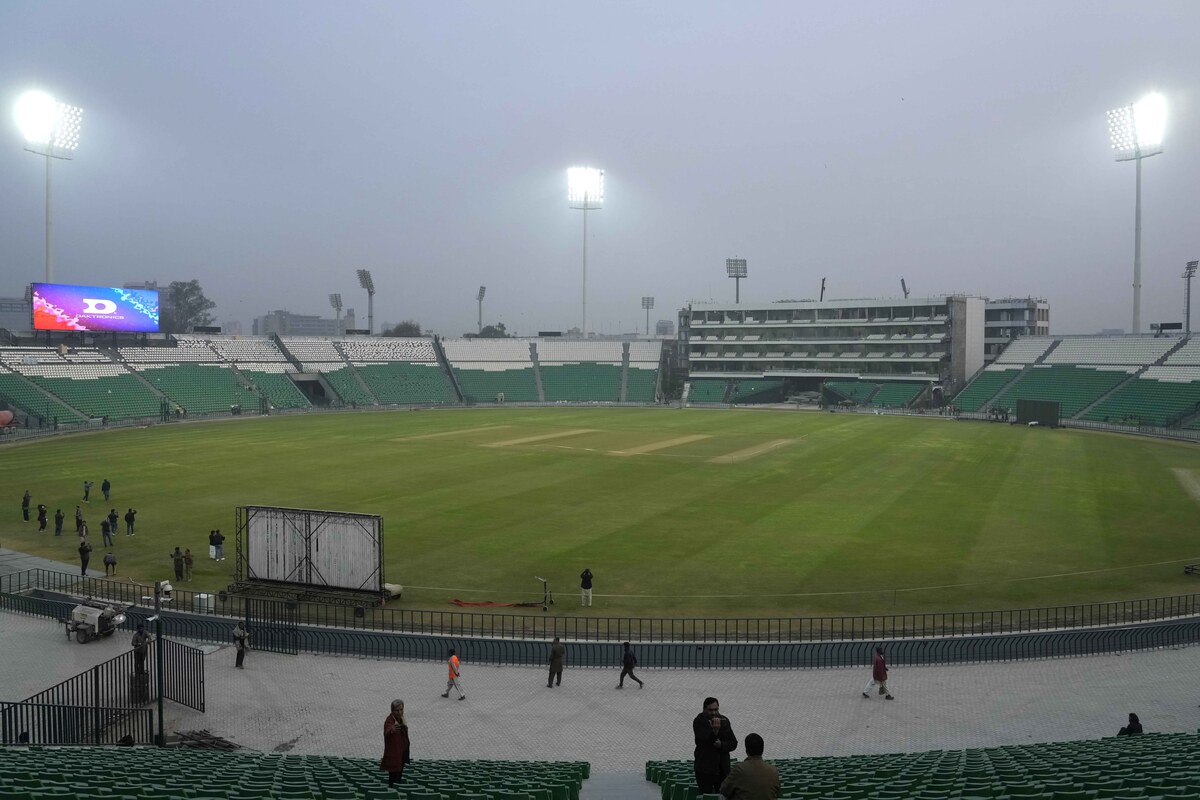PESHAWAR: For years the distinctive twang of Pashtun music was drowned out by rattling gunfire and deafening explosions as musicians in Pakistan’s northwest were targeted by militants. But, as security improves, a centuries-old tribal tradition is staging a comeback.
Performances that once took place in secret are returning. Shops selling instruments are open and thriving again, while local broadcasters frequently feature rising Pashto pop singers in their programming.
And new, up and coming bands like Peshawar’s Khumariyaan have reached rare, nationwide acclaim after appearing on the popular Coke Studios broadcast, where they fused traditional sounds with modern tastes — spreading Pashtun music far from its native homeland.
“Music is the spice of life... it has been a part of our culture from time immemorial,” says Farman Ali Shah, a village elder and Pashto poet in Warsak village near Pakistan’s tribal areas in Khyber Pakhtunkhwa province.
Pashtun music is characterised by the rabab, a Central Asian stringed instrument, played to the beat from tablas drums, with songs salted with florid lyrics describing the pain of unrequited love or calls for politcial revolution.
“For centuries we were a liberal society,” explains rabab player and member of the National Assembly Haider Ali Khan from Pakistan’s Swat Valley.
“We love our religion but at the same time we love our traditional music.”
Yet the slow creep of extremism had been threatening that tradition for decades.
Beginning in the 1970s more hard-line Islamist movements started gaining influence in the Pashtun areas along the border with Afghanistan, promoting strict interpretations of the religion including dismissive takes toward music.
The shift toward violent extremism intensified with the 1979 Soviet invasion of Afghanistan and the later Taliban regime of the 1990s.
After the US invasion of 2001 toppled the Taliban, militancy erupted across the border in Pakistan also. A Pakistani Taliban movement formed and took control of the country’s tribal areas and swathes of Khyber Pakhtunkhwa.
“The extremists were killing artists and singers in the society to create fear,” explains singer Gulzar Alam, who was attacked three separate times and later left Pakistan, fearing for his life.
“If you remove the culture from a community, tribe, or ethnic group the community will be eliminated.”
Public performances were all but halted as waves of suicide bombers unleashed havoc.
CD markets were bombed, instrument shops destroyed, and musicians were intimidated or either outright targeted.
Singers and musicians fled en masse, while others were gunned down.
A brave few continued to invite musicians to play in private shows at hujras and weddings, albeit without large sound systems that could possibly attract militants.
“They were asking people to stop music but villagers never accepted them,” says Noor Sher from Sufaid Sang village, where his family has been making rababs by hand for 25 years.
Amid the chaos the art form was also maintained thanks to increasing numbers of Afghan musicians also fleeing violence in their own country who resettled in places like Peshawar, opening music schools that kept the tradition alive.
The Pakistani military began intensifying efforts to push the militants out in 2014, and security has dramatically improved in the years since.
“Now the situation is good, very good. We can play anywhere, whenever people invite us,” says rabab player Akhtar Gul during a performance at a hujra — a traditional Pashtun community space.
As music has returned to its traditional settings in the country’s northwest, slick broadcasts like Coke Studio have helped introduce Pashtun acts to millions of music fans across South Asia.
Many still remain cautious in Khyber Pakhtunkhwa, however, fearing the gains are tenuous at best. Some interviewed by AFP refused to criticize militants, fearing their eventual return.
And while the insurgents might have been pushed back, conservative attitudes toward music continues to resonate in the area.
For Abdul Latif, 24, his love of playing the rabab is largely kept secret from his family who consider such instruments to be out of sync with Islam.
“This is a part of Pashtun culture but I think my family lacks awareness,” he says.
For musicians like Alam who were forced to flee their homes, the damage runs deeper.
“It takes a lot of time, to set the mind or brain of the artists free from fear,” says Alam from Kabul where he is waiting for a response to an asylum request with the United Nations.
“You can change the policy of a government with a stroke of a pen, it doesn’t take much time,” adds the the lawmaker Khan.



















